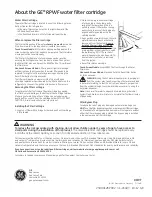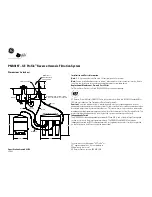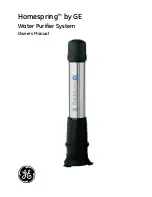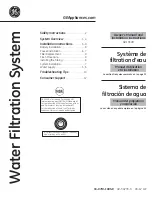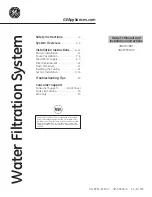
©1995 Central Sprinkler Company
Printed in U.S.A.
ELO-16 GB FR OH.1
Central Sprinkler Company
451 N. Cannon Avenue, Lansdale, PA 19446
Phone (215) 362-0700
FAX (215) 362-5385
Ordering
Information
Ordering Information: When placing
an order, indicate the full product
name. Please specify the quantity,
model, style, orifice size, temperature
rating, type of finish or coating, and
sprinkler wrench.
Availability and Service: Central
sprinklers, valves, accessories, and
other products are available through-
out the U.S. and Canada, and
internationally, through a network of
Central Sprinkler distribution centers.
You may write directly to Central
Sprinkler Company, or call (215) 362-
0700 for the distributor nearest you.
Guarantee: Central Sprinkler Com-
pany will repair and/or replace any
products found to be defective in
material or workmanship within a
period of one year from the date of
shipment. Please refer to the current
Price List for further details of the
warranty.
Patents: The ELO-16 GB FR
Optima™ sprinklers are protected
under U.S. Patent No. 5,366,022.
Conversion Table:
1 inch = 25.400 mm
1 foot = 0.3048 M
1 pound = 0.4536 kg
1 foot pound = 1.36 Nm
1 psi = 6.895 kpa
= 0.0689 bar
= 0.0703 kg/cm
2
1 U.S. gallon = 3.785 dm
3
= 3.785 liters
Conversions are approximate.
OPTIMA™ is a registered trademark
of Central Sprinkler Company.
Care &
Maintenance
Sprinklers must be handled care-
fully. They must not be transported or
stored where ambient temperature
may exceed 100
°
F/38
°
C. For best
results, store them in a dry, cool
location in the original shipping
package.
Do not install sprinklers that have
been dropped or visibly damaged.
Sprinklers should never be painted,
coated, plated, or altered in any other
way from manufactured condition or
they may not function properly. Any
sprinklers altered in such manner
must be replaced.
The owner is responsible for the
proper operating condition of all fire
protection devices and accessories.
The NFPA Standard 25 entitled,
“Inspection, Testing and Maintenance
of Water-Based Fire Protection
System”, contains guidelines and
minimum maintenance requirements.
Furthermore, the local
Authority
Having Jurisdiction may have addi-
tional regulations and requirements
for maintenance, testing, and inspec-
tion that must be obeyed.
It is advisable to have sprinkler
systems inspected regularly by a
qualified inspection service. Length
of time between such inspections can
vary due to accessibility, ambient
atmosphere, water supply, and site
activity.
Do not attempt to reassembly or
otherwise reuse a sprinkler that has
operated. Replace any sprinkler
exhibiting corrosion or damage;
always use new sprinklers of the
same type and temperature rating as
replacements.
Because the discharge pattern is
critical to protection of life and
property, nothing should be hung or
attached to the sprinkler unit that
would disrupt the pattern. Such
obstructions must be removed. In the
event that construction has altered
the original configuration, additional
sprinklers should be installed to
maintain the protection level.
Do not attempt to replace sprinklers
without first removing the fire protec-
tion system from service. Be certain
to secure permission from all
Authori-
ties Having Jurisdiction, and notify all
personnel who may be affected
during system shutdown. A fire
watch during maintenance periods is
a wise precaution.
To remove the system from service
mode, first refer to the system
operating guide and valve instruction.
Drain the water and relieve pressure
in the pipes. Remove the existing
unit and install the replacement, using
only the special sprinkler wrench. Be
certain to match the model, style,
orifice, and temperature rating.
A fire protection system that has
been shut off after an activation
should be returned to service immedi-
ately. Inspect the entire system for
damage and replace or repair as
necessary. Sprinklers that did not
operate but were subjected to corro-
sive elements of combustion or
excessive temperatures should be
inspected, and replaced if need be.
The
Authority Having Jurisdiction will
detail minimum replacement require-
ments and regulations.
OBSOLETE






